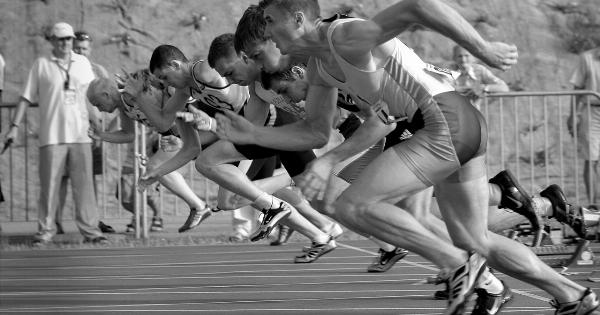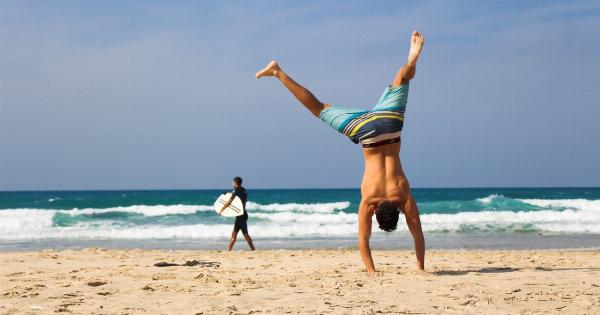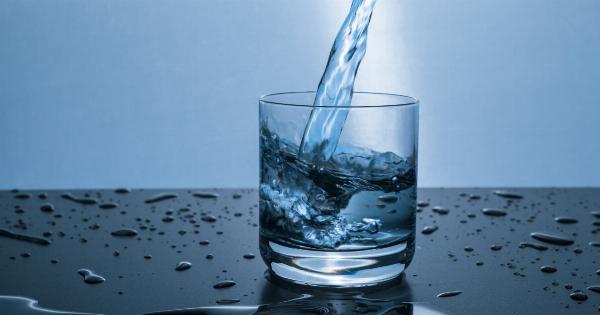When it comes to achieving peak performance in any physical activity, proper hydration plays a crucial role.
Whether you are an athlete, a fitness enthusiast, or someone who enjoys regular exercise, staying hydrated is essential for optimizing your body’s functions and improving your endurance. In this article, we will explore the importance of hydration and how it can help you go the distance in your fitness journey.
The Science Behind Hydration
Water is the primary component of our bodies and accounts for a significant percentage of our overall weight. Every organ, tissue, and cell in our body relies on water to function properly.
When we exercise or engage in physical activities, our bodies lose water through sweat, and it is crucial to replenish this lost fluid to prevent dehydration.
Dehydration occurs when the amount of water leaving our bodies exceeds the amount we intake. Even mild dehydration can have adverse effects on our performance, leading to fatigue, muscle cramps, dizziness, and reduced cognitive function.
To ensure optimal performance, it is necessary to maintain proper hydration levels before, during, and after physical activity.
Pre-Workout Hydration
Proper hydration should start well before you even begin your workout. Drinking an adequate amount of water before exercising helps prepare your body for the upcoming physical stress and prevents excessive fluid loss during the workout.
The American Council on Exercise recommends consuming 17-20 ounces (approximately 500-600 ml) of water two to three hours before exercising.
In addition to water, consuming beverages that contain electrolytes can be beneficial. Electrolytes, such as sodium, potassium, and magnesium, help regulate the balance of fluids in our bodies, maintain muscle function, and prevent cramping.
Consider drinking an electrolyte-rich sports drink or coconut water as part of your pre-workout hydration routine.
Hydration During Exercise
Maintaining proper hydration during exercise is crucial to prevent dehydration and optimize performance.
The amount of fluid you need to consume during exercise depends on various factors such as the intensity and duration of your workout, environmental conditions, and individual sweat rates. As a general guideline, aim to drink 7-10 ounces (200-300 ml) of fluid every 10-20 minutes during exercise.
Water is usually sufficient for shorter workouts or activities under an hour.
However, for more prolonged or intense exercise sessions exceeding an hour, consider incorporating sports drinks or other electrolyte-enhanced beverages to replenish lost fluids and electrolytes more effectively.
Post-Workout Hydration
Proper hydration doesn’t end when your workout is over. Replenishing the fluids and electrolytes lost during exercise is essential for optimal recovery and the body’s ability to repair and rebuild itself.
After an intense workout, aim to drink at least 16-24 ounces (475-710 ml) of fluids for every pound (0.45 kg) lost through sweating.
Additionally, it is advisable to consume a post-workout snack or meal that includes water-rich fruits and vegetables.
These foods not only provide hydration but also supply essential vitamins, minerals, and antioxidants that aid in muscle recovery and overall health.
Signs of Dehydration
Recognizing the signs of dehydration is crucial to prevent further complications and ensure appropriate hydration. Some common symptoms of dehydration include:.
1. Increased thirst.
2. Dry mouth or throat.
3. Fatigue or weakness.
4. Dizziness or lightheadedness.
5. Dark-colored urine.
6. Headache.
7. Muscle cramps.
8. Reduced sweat and urine output.
If you experience any of these symptoms, it is essential to rest, rehydrate, and seek medical attention if necessary.
Factors Affecting Hydration Needs
The amount of water each individual requires to stay properly hydrated can vary based on several factors. Some of these include:.
1. Body size and weight: Larger individuals typically require more water.
2. Activity level: Those engaging in intense or prolonged exercise need more fluids.
3. Environmental conditions: Hot and humid environments increase fluid needs.
4. Altitude: Higher altitudes can cause increased fluid loss.
5. Overall health: Certain medical conditions may affect hydration requirements.
Awareness of these factors can help you adjust your hydration strategies accordingly and ensure optimal performance and well-being.
Tips for Staying Hydrated
Here are some practical tips to help you stay properly hydrated:.
1. Carry a water bottle: Having a water bottle with you at all times serves as a reminder to drink water frequently throughout the day.
2. Set hydration reminders: Use phone alarms or apps to remind you to drink fluids regularly.
3. Monitor urine color: Pay attention to the color of your urine. Ideally, it should be pale yellow. Dark-colored urine indicates dehydration.
4. Eat hydrating foods: Consume water-rich foods such as watermelon, cucumbers, citrus fruits, and leafy greens to boost your fluid intake.
5. Track your water intake: Use a water tracking app or simply keep a tally of your water consumption to ensure you are meeting your daily hydration goals.
6. Limit caffeine and alcohol: Both caffeine and alcohol have diuretic effects, which can increase fluid loss. Consume them in moderation and balance them with water intake.
The Bottom Line
Proper hydration is essential for anyone looking to go the distance in their fitness journey.
By maintaining optimal hydration levels before, during, and after physical activities, you can improve your performance, prevent dehydration, and support your body’s overall function. Don’t underestimate the power of water and electrolytes in unlocking your full potential.






























